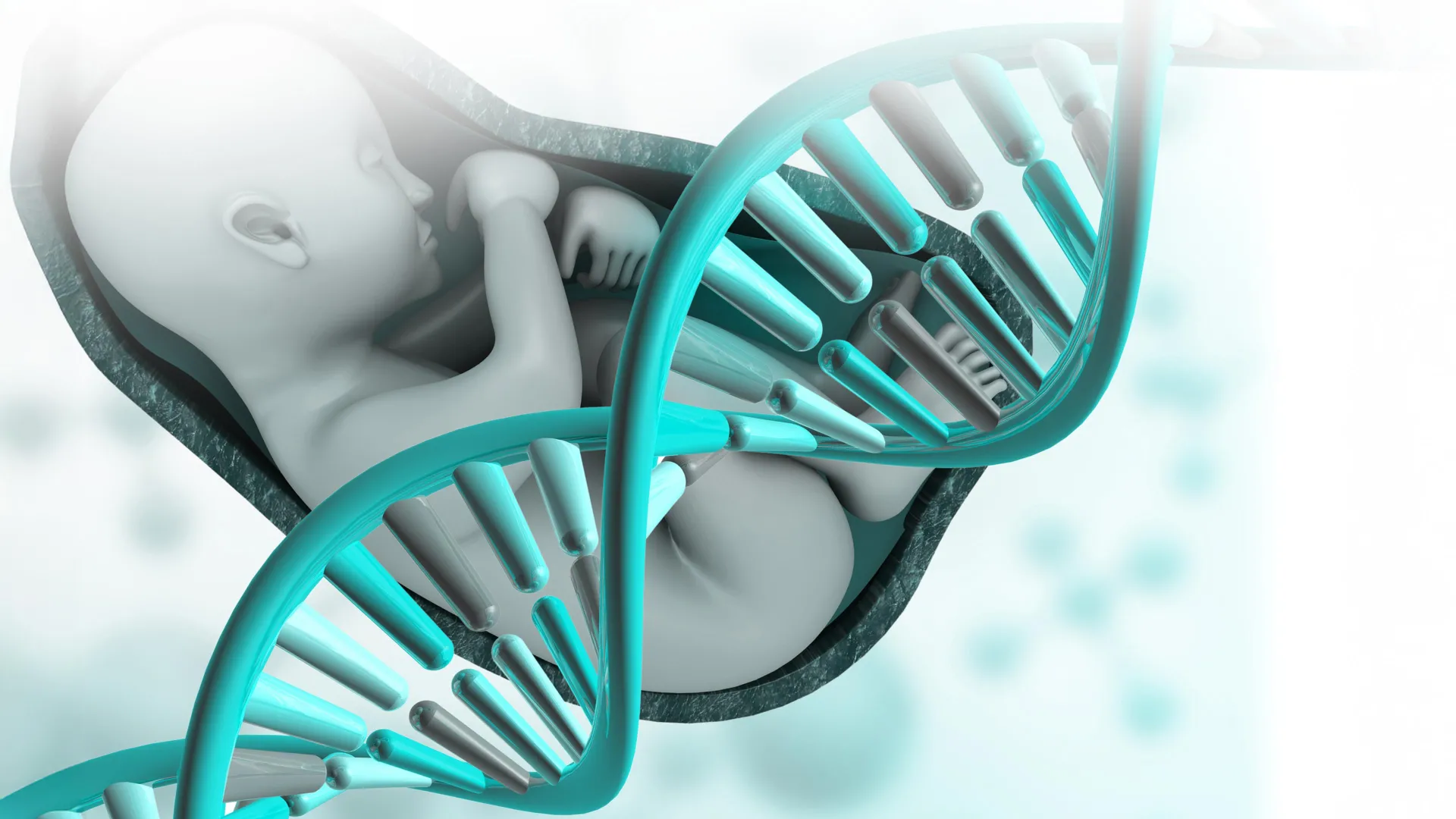Dad's genes build placentas, explaining grandsire effect
- Date:
- August 15, 2013
- Source:
- Cornell University
- Summary:
- Dad’s DNA calls the shots when it comes to building the placenta, says a new Cornell study that uncovered dozens of paternally active genes using horse-donkey hybrids. This surprising genetic dominance could explain odd inheritance patterns in animals — and might hold keys to human disease.
- Share:

Placentas support the fetus and mother, but those organs grow according to blueprints from dad, according to new research at Cornell University. The study, published in the Proceedings of the National Academy of Sciences in June, shows that the genes in a fetus that come from the father dominate in building the fetal side of the placenta.
Genes work in pairs: one from each parent. But about 1 percent of mammalian genes choose sides, a phenomenon called genomic imprinting. Imprinted genes use molecules that bind to DNA (epigenetic tags) to quiet one half and let the other lead. In the study, the researchers discovered 78 new imprinted genes using horse-donkey hybrids.
"This is the first study to offer an unbiased profile of novel imprinted genes in a mammal other than mice," said lead author Xu Wang, a postdoctoral associate in the laboratory of Andrew Clark, professor of molecular biology and genetics and the study's senior author. Strikingly, a majority of the imprinted candidates were paternally expressed, and this expression bias was lost when the transcriptomes of fetal tissues were examined. At the same time, as in mice, paternally imprinted genes heavily regulate placental development in these animals.
"Mouse experiments showed that if all DNA comes from the mother, the embryo grows quite well, but not the placenta, suggesting some degree of sex-based division of labor between programming the placenta and the embryo," said Wang. "Our results confirm what these past findings suggested."
The methods used in the study may also help breeders.
"This discovery explains what breeders call the maternal grandsire effect," said co-senior author Doug Antczak, equine geneticist at Cornell's College of Veterinary Medicine. "Some genes, like so-called speed genes in great racehorses, skip a generation and only express in grandchildren if their carrier was a certain sex. For example, most foals of history's best racehorse, Secretariat, raced poorly. So did his sons' offspring. But many of his daughters' foals were outstanding racehorses. We've developed a new approach that can identify imprinted genes that may be linked to racehorse traits and which could help breeders' decision-making."
Better understanding of genomic imprinting may offer insights into several human diseases. Mistakes in imprinting genes can impair development, spurring genetic problems that can cause gigantism, dwarfism, neurological failures, incomplete sexual development and others. Funding was provided by the Cornell Center for Vertebrate Genomics, Zweig Memorial Fund and Morris Animal Foundation.
Story Source:
Materials provided by Cornell University. Note: Content may be edited for style and length.
Journal Reference:
- X. Wang, D. C. Miller, R. Harman, D. F. Antczak, A. G. Clark. Paternally expressed genes predominate in the placenta. Proceedings of the National Academy of Sciences, 2013; 110 (26): 10705 DOI: 10.1073/pnas.1308998110
Cite This Page: